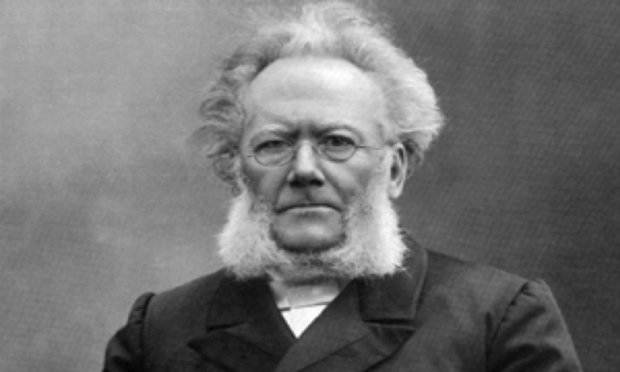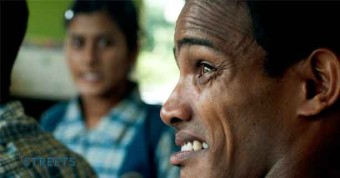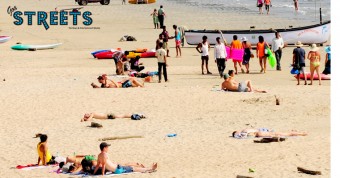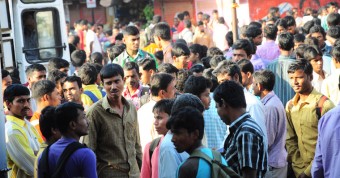Henrik Ibsen
A Lesson for Goa
A compelling radio play with an important message – sponsored by Goa Streets
When I was a child, symptoms I would often tune in to the BBC Play of The Week on the family radio, a compact Sony TR-812 with a lot of knobs to fiddle with. The transmission was very clear and every word was audible despite the typical rise and fall of shortwave sound. No TV, no Internet and no porn websites those days, so a young lad got some culture by default. That old radio now lies in our attic, long retired as its knobs failed and its circuit gave up the ghost.
So when I heard that Bina Datwani, a fellow member of the Goa Writers group was producing a radio play, I was curious. Bina and her Radioactive crew actually went ahead and did it. Sponsored by Goa Streets, they produced and broadcast a radio play on All India Radio’s 105.4 FM in two parts on 17 and 18 May 2014. It was titled ‘An Enemy of the People’, adapted by Bina from the original play of the same name by Henrik Ibsen.
In its original Norwegian avatar the play was called En folkefiende and was first staged in 1882. Arthur Miller adapted it in the 1950s and the adaptation went on to television in 1966. The inevitable movie was made in 1978, starring Steve McQueen.
What is the plot in Radioactive’s version of Ibsen’s classic? The play is set in Goa, around an environmental issue, of the kind we now regularly see in the dailies. A new health resort has been set up in a small Goan town, with springs that have medicinal powers bringing prosperity for everyone. But Dr Thomas Fernandes, the medical officer of the health spa, discovers dangerous bacteria polluting its water. He is determined to expose the risk and protect the community. The play tells the story of how the conscientious doctor goes from being a friend of the people to an enemy resented and shunned by everyone. Its central theme deals with the price of honesty and the need for moral courage.
The play strikes a chord with the present scenario in Goa, where many issues make one unsure of whether they should be supported or opposed. The conflict between development and the environment stares every Goan in the face. A mining site at Sanguem brings in bucks for truckers and workers but sorrow to polluted fields. Quarries in Quepem make laterite and granite dealers rich, but ravage the pristine countryside. We crave fish, and often look away when trawlers raid the seas during breeding season.
The price for opposing what one sees as bad in Goa can range from Income Tax raids, job transfers, bad press and social hostility. Then there are the allegations that a protestor is hand-in-glove with ‘vested interests’. As the play demonstrates, even the media can be manipulated to stifle protest and to serve as ‘spin doctors’ for a profitable issue.
To listen this Goan version of An Enemy of the People, click here : https://archive.org/details/ibsen-in-goa
But the price paid for ignoring and drowning out the lone protestor is often terrible and permanent. In the play, the Salmon Spring Resort is contaminated by leachate from a waste dump. Such pollution in real life extracts a heavy toll. Most of the wells in Calangute, Margao and other towns are now contaminated beyond redemption by leaking septic tanks and industrial waste. Even diesel from storage tanks has made its way into drinking water wells! Where do the townsfolk run when this happens? Rely on public water supply? That too has its share of e.coli and other nasty bacteria.
The lead characters of Dr. Thomas Fernandes and his brother Peter who is the town’s Mayor are played by Dean D’Cruz and Salil Chaturvedi, respectively. The doctor’s wife Catherine Fernandes is well acted by Alice D’Cruz. Bina herself is the narrator in the play as well as Ayesha, a journalist at the Streets Daily. This combination could have been avoided, though Bina does justice to the ‘double role’. Monika Kshatriya plays two roles too, that of Priscilla and Savio, the doctor’s children. She modulates her voice well to switch between these two siblings. Kiran Bhandari, a regular at the popular Goan theatre ensemble Mustard Seed Art Company, plays Martin D Souza, the crafty father-in-law of the doctor.
I would have liked to see Dean D’Cruz play the Mayor Peter Fernandes. Dean’s stentorian voice lends well to an authoritarian character like Peter’s that seeks to drown out the opposition. Salil Chaturvedi who plays Peter would have been better cast as the heroic Dr Thomas.
The town could have been given a name, perhaps a fictional one, like in Victor Rangel’s novel Tivolem. A name would have defined the character of the town and its people and could have worked as a good handle. There is a mention of the Sonsoddo waste dump at one point, so that town could well be Raia in Salcete.
There are many powerful lines in the original play that could have been used well in this adaptation. “You see, the point is that the strongest man in the world is he who stands most alone” is expressed in the closing line of the Goan play as “The Strong must learn to be lonely!”
Ironically, both statements ring true. He who fights alone is the strongest. And he who is strong must endure loneliness on the long road to redemption. This adaptation of Ibsen’s classic play is a clarion call for fence sitters in Goa to look long and hard at the problems around and take a stance today. You may be an enemy of the people today, but you will be hailed as a hero by their grandchildren.




